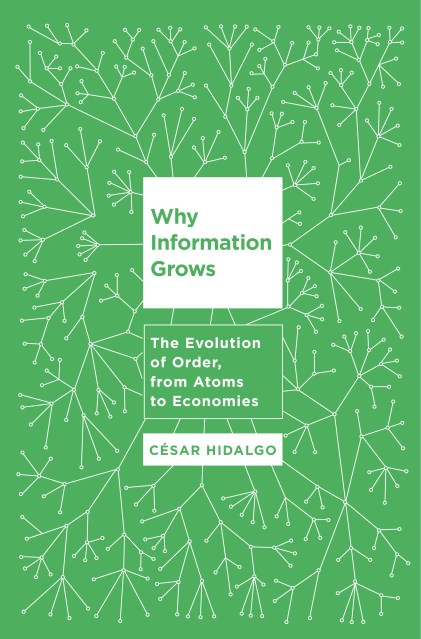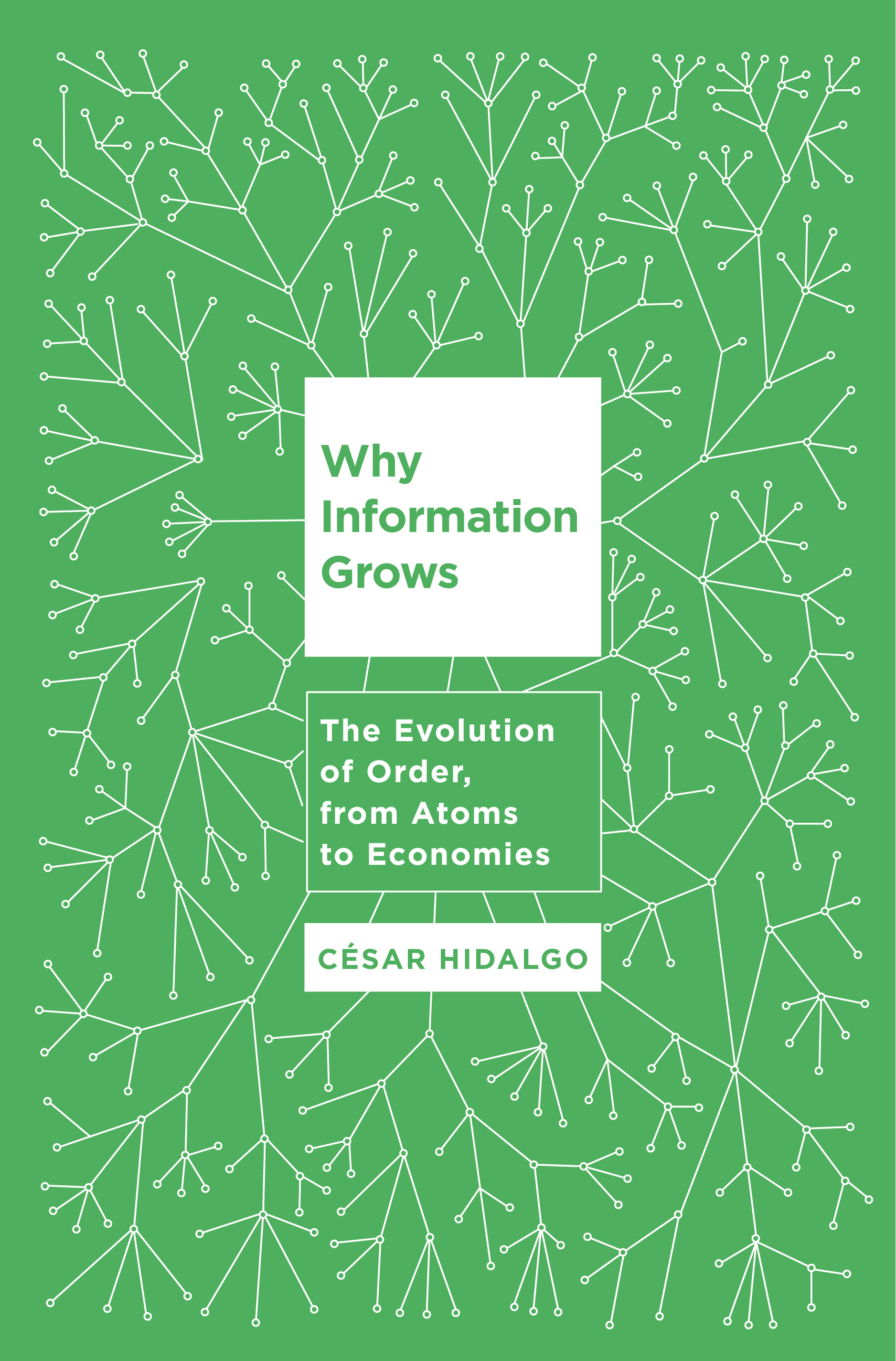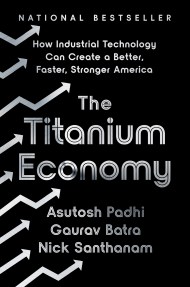Promotion
Use code MOM24 for 20% off site wide + free shipping over $45
Why Information Grows
The Evolution of Order, from Atoms to Economies
Contributors
Formats and Prices
Price
$12.99Price
$16.99 CADFormat
Format:
- ebook $12.99 $16.99 CAD
- Hardcover $26.99 $33.99 CAD
- Trade Paperback $19.99 $25.99 CAD
This item is a preorder. Your payment method will be charged immediately, and the product is expected to ship on or around June 2, 2015. This date is subject to change due to shipping delays beyond our control.
Also available from:
What is economic growth? And why, historically, has it occurred in only a few places? Previous efforts to answer these questions have focused on institutions, geography, finances, and psychology. But according to MIT’s antidisciplinarian Cér Hidalgo, understanding the nature of economic growth demands transcending the social sciences and including the natural sciences of information, networks, and complexity. To understand the growth of economies, Hidalgo argues, we first need to understand the growth of order.
At first glance, the universe seems hostile to order. Thermodynamics dictates that over time, order-or information-disappears. Whispers vanish in the wind just like the beauty of swirling cigarette smoke collapses into disorderly clouds. But thermodynamics also has loopholes that promote the growth of information in pockets. Although cities are all pockets where information grows, they are not all the same. For every Silicon Valley, Tokyo, and Paris, there are dozens of places with economies that accomplish little more than pulling rocks out of the ground. So, why does the US economy outstrip Brazil’s, and Brazil’s that of Chad? Why did the technology corridor along Boston’s Route 128 languish while Silicon Valley blossomed? In each case, the key is how people, firms, and the networks they form make use of information.
Seen from Hidalgo’s vantage, economies become distributed computers, made of networks of people, and the problem of economic development becomes the problem of making these computers more powerful. By uncovering the mechanisms that enable the growth of information in nature and society, Why Information Grows lays bear the origins of physical order and economic growth. Situated at the nexus of information theory, physics, sociology, and economics, this book propounds a new theory of how economies can do not just more things, but more interesting things.
Genre:
- On Sale
- Jun 2, 2015
- Page Count
- 256 pages
- Publisher
- Basic Books
- ISBN-13
- 9780465039715
Newsletter Signup
By clicking ‘Sign Up,’ I acknowledge that I have read and agree to Hachette Book Group’s Privacy Policy and Terms of Use







